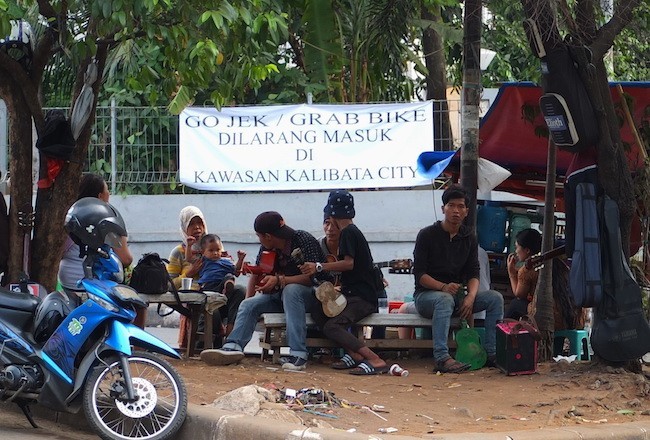 Police take cover behind riot shields as garment factory workers throw rocks at them during a protest that turned violent in Bavet yesterday morning.
Police take cover behind riot shields as garment factory workers throw rocks at them during a protest that turned violent in Bavet yesterday morning.
23 Dec – Ongoing protests by striking garment workers in the Svay Rieng province town of Bavet spiralled into “anarchy” yesterday after protesters pelted police with rocks, aggravating an already volatile situation and spurring national authorities to begin mediation efforts.
Two military police were injured in the encounter, which took place in the Manhattan Special Economic Zone, according to Ros Tharith, provincial administration director.
“It became anarchy,” he said.
Police said no arrests were made.
According to Rex Lee, manager of the Manhattan SEZ, some 5,000 protesters gathered in the zone yesterday morning as part of an ongoing strike action that has rocked several SEZs in Bavet.
The incidents began at about 8:15am and lasted about an hour and a half. Workers threw rocks at factories and pelted police who had gathered to block them, while police once again utilised hoses from fire trucks to disperse them.
“They threw a rock at my head and my helmet broke and it went through,” military police officer Kaet Cheavon, 31, said as he sat on his hospital bed yesterday.
Cheavon said the protestors essentially “chased” the outnumbered police around the SEZ as there were “too many to arrest”. None of the injuries to police were critical.
The violence is the latest in a string of incidents that have rocked the SEZs since last Wednesday, when 30,000 workers at the Tai Seng and Manhattan SEZs walked out on the job.
The workers are not satisfied with next year’s raise in the minimum wage, demanding a $20 raise from the current rate of $128, $8 more than the $140 rate for 2016 set in October.
Continue reading “Cambodia: Violent protests boil over in Bavet”
 Police use a fire hose to disperse demonstrators at a protest in Bavet this morning, where thousands of garment workers are striking to demand an increase to the minimum wage.
Police use a fire hose to disperse demonstrators at a protest in Bavet this morning, where thousands of garment workers are striking to demand an increase to the minimum wage. Garment workers pour out of the Tai Seng Bavet SEZ earlier this week in Svay Rieng province during a large protest, calling for a higher minimum wage for the industry.
Garment workers pour out of the Tai Seng Bavet SEZ earlier this week in Svay Rieng province during a large protest, calling for a higher minimum wage for the industry.

